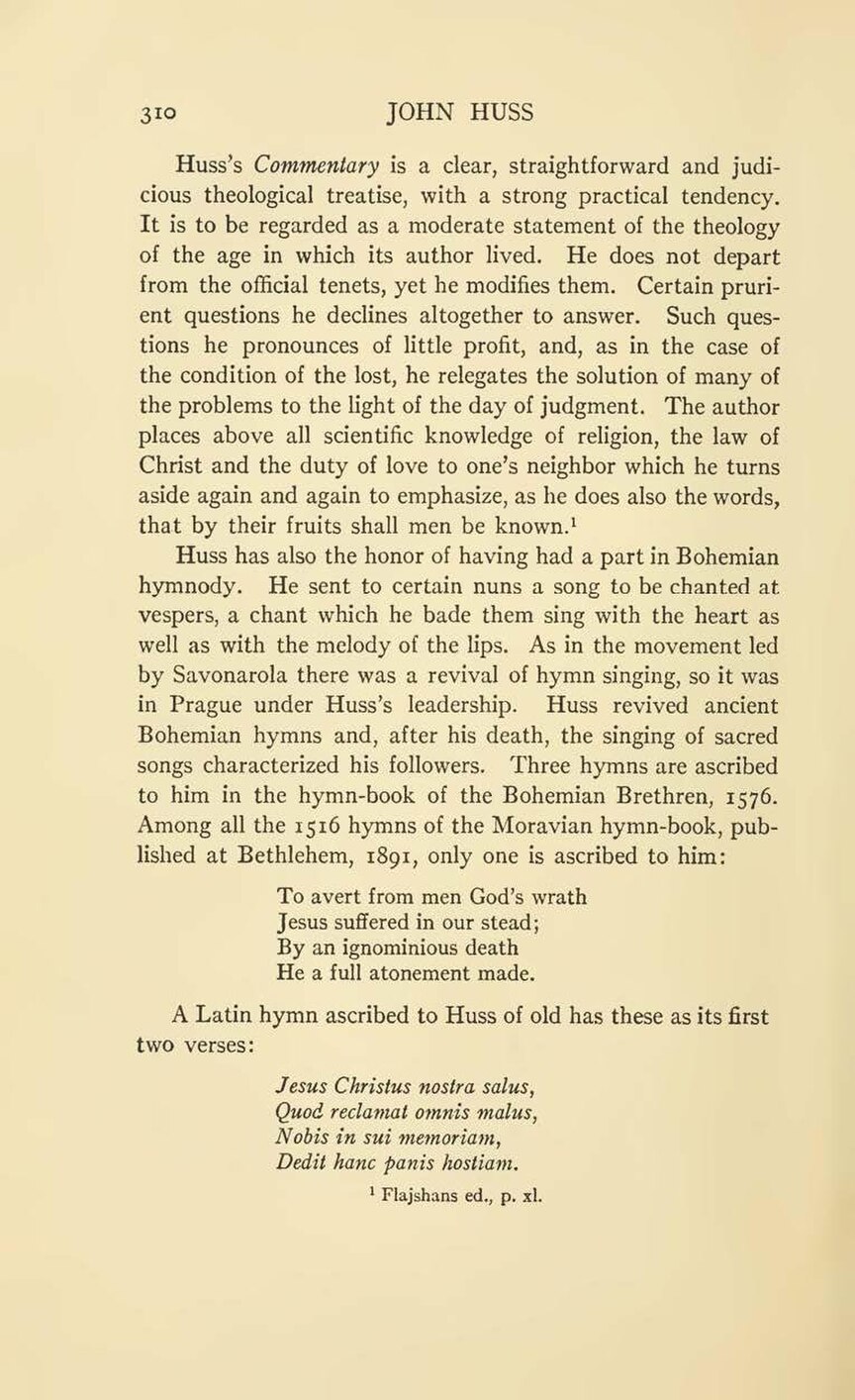Huss’s Commentary is a clear, straightforward and judicious theological treatise, with a strong practical tendency. It is to be regarded as a moderate statement of the theology of the age in which its author lived. He does not depart from the official tenets, yet he modifies them. Certain prurient questions he declines altogether to answer. Such questions he pronounces of little profit, and, as in the case of the condition of the lost, he relegates the solution of many of the problems to the light of the day of judgment. The author places above all scientific knowledge of religion, the law of Christ and the duty of love to one’s neighbor which he turns aside again and again to emphasize, as he does also the words, that by their fruits shall men be known.[1]
Huss has also the honor of having had a part in Bohemian hymnody. He sent to certain nuns a song to be chanted at vespers, a chant which he bade them sing with the heart as well as with the melody of the lips. As in the movement led by Savonarola there was a revival of hymn singing, so it was in Prague under Huss’s leadership. Huss revived ancient Bohemian hymns and, after his death, the singing of sacred songs characterized his followers. Three hymns are ascribed to him in the hymn-book of the Bohemian Brethren, 1576. Among all the 1516 hymns of the Moravian hymn-book, published at Bethlehem, 1891, only one is ascribed to him:
To avert from men God’s wrath
Jesus suffered in our stead;
By an ignominious death
He a full atonement made.
A Latin hymn ascribed to Huss of old has these as its first two verses:
Jesus Christus nostra salus,
Quod reclamat omnis malus,
Nobis in sui memoriam,
Dedit hanc panis hostiam.
- ↑ Flajshans ed., p. xl.
